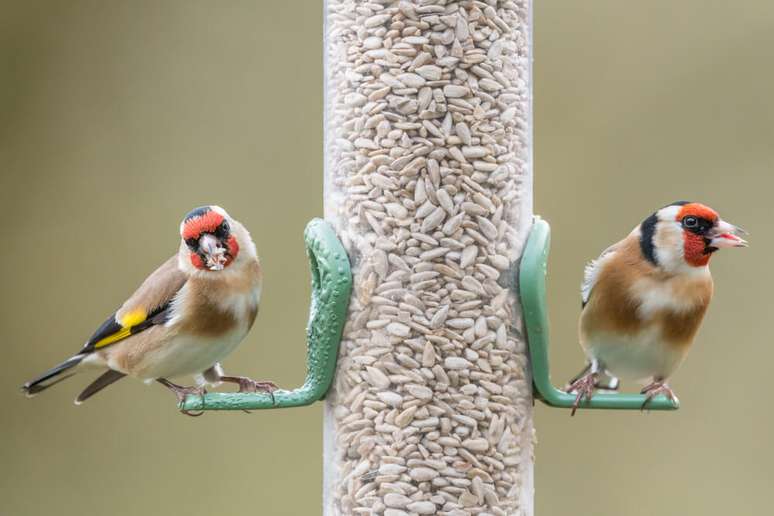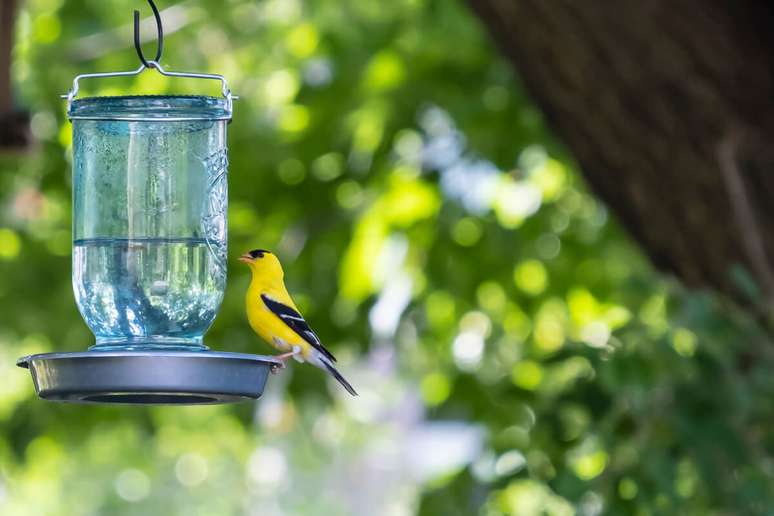Birds have an accelerated metabolism, which makes them more susceptible to overheating.
It is important to care for pet birds during hot weather due to their sensitivity to high temperatures. Unlike mammals, birds have a limited ability to dissipate heat, as they do not sweat like humans. This makes them particularly vulnerable to heat stress and dehydration.
Additionally, birds have an accelerated metabolism, which makes them more susceptible to overheating. Prolonged exposure to extreme heat can lead to discomfort, exhaustion, and even more serious cases such as heat stroke. So, check out some tips for maintaining your bird’s well-being during the hottest days!
1. Keep the water fresh
Always leave fresh, clean water available for the bird. Change the water at least once a day.
2. Refreshing bath
Offer the bird regular baths, using a spray bottle or a specially designed bathtub. birds. This helps keep the plumage clean and regulate body temperature.
3. Suitable shade
Make sure the cage or terrarium is in a place where there is shade during part of the day, avoiding direct exposure to the sun.
4. Pay attention to ventilation
Maintain good air circulation inside environment, but avoid drafts directly above the cage, as they can be harmful to the birds’ health. If it’s indoors, make sure there’s enough ventilation to avoid overheating.
5. Offer fresh fruits and vegetables
Include fresh water-rich fruits and vegetables, such as watermelon, cucumber and apple, in your birds’ diet to help them with hydration.

6. Pay attention to your diet
Provide a balanced diet and nutritious, which includes seeds, pellets and vitamin supplements, according to the needs of the species and the guidance of a veterinarian.
7. Avoid wire cages
During hot weather, avoid wire cages exposed directly to the sun, as they can become very hot and harm the birds’ health.
8. Temperature monitoring
Use a thermometer to monitor the temperature in the area where the bird is housed and intervene if it is too hot.
9. Pay attention to signs of stress
Observe the bird’s behavior and pay attention signs of stresssuch as heavy breathing or listlessness, and take him to the vet if you feel it is necessary.
Source: Terra
Ben Stock is a lifestyle journalist and author at Gossipify. He writes about topics such as health, wellness, travel, food and home decor. He provides practical advice and inspiration to improve well-being, keeps readers up to date with latest lifestyle news and trends, known for his engaging writing style, in-depth analysis and unique perspectives.








